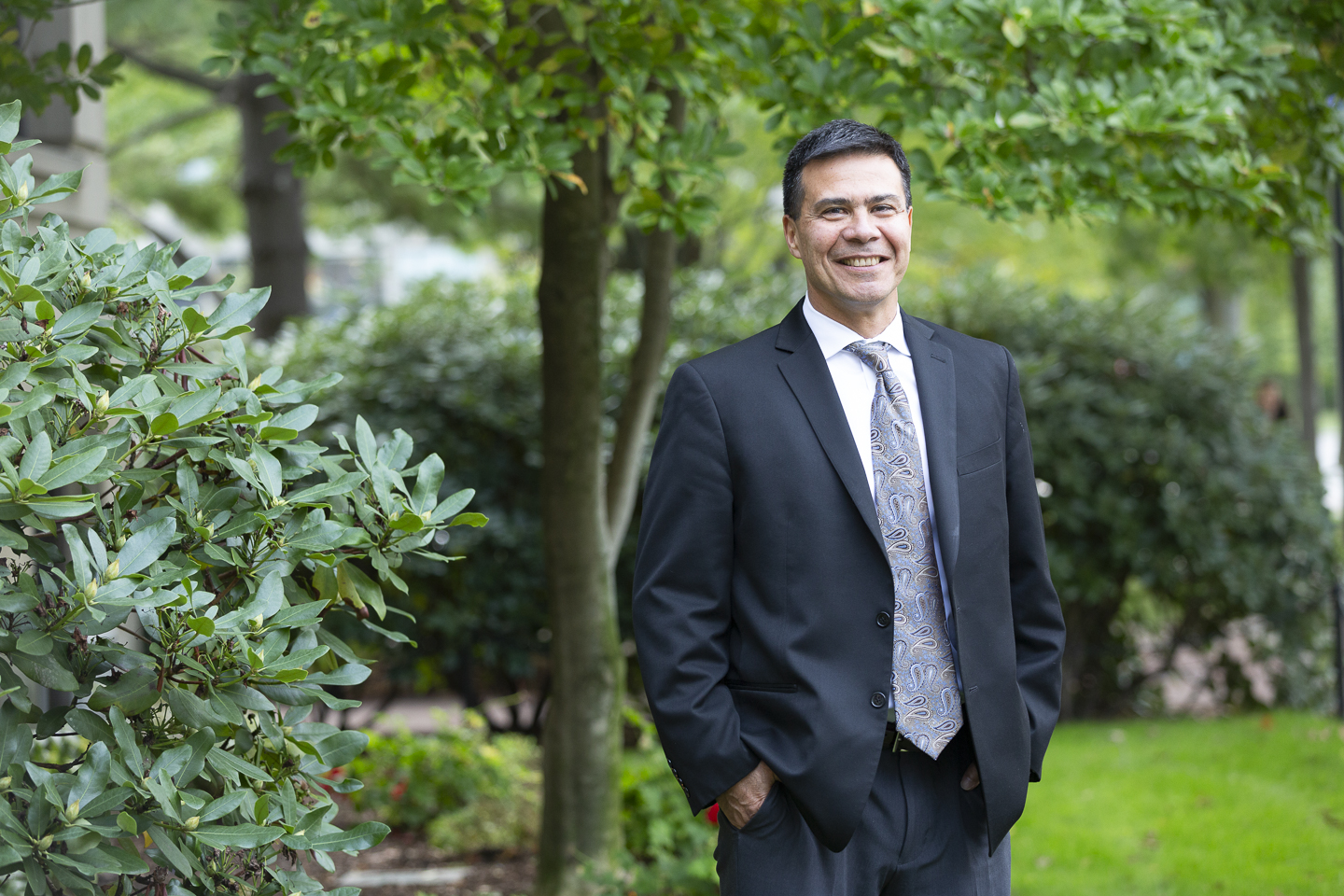Monday, August 14, 2023

Social work research has come a long way in recent years, cementing a place for the discipline with high-quality research and publications in prestigious academic journals. Despite this progress, Prof. Jorge Delva, former BU School of Social Work Dean and former director of the Center for Innovation in Social Work & Health reminds us that social workers in academia would be remiss to forget their roots as social change activists.
In a recent article published by the Journal of the Society for Social Work and Research, Prof. Jorge Delva and Prof. Laura Abrams, professor and department chair of social welfare at UCLA, explore the substantial growth of social work research after a decades-long fight for a seat at the table with other sciences. At the same time, Prof. Delva notes that social work researchers also have unique expertise and skills to conduct research that can influence social movements and directly improve the lives of people who are marginalized.
“Many of us in social work think the pendulum switched to a more standard way of doing research and pursuing large grants so that we could gain legitimacy within the academic community,” Prof. Delva explains. “I think we moved a little too far away from the implementation aspect of the work. We need to find a balance where we’re doing cutting-edge research in service of developing knowledge that leads to improvements in our communities.”
Profs. Delva and Abrams want to celebrate the significant developments in social work research while also exploring ways to strike that balance.
“I think we had to go through that process when the pendulum swung away from direct impact, in part because we needed to establish that structural strength and knowledge base,” Prof. Delva says. “Our article seeks to remind social work researchers of the need to continue conducting cutting-edge research and publishing in highly-ranked journals without forgetting direct impact.”
To find that middle ground, there will need to be systemic change in universities. Prof. Delva has experienced these challenges firsthand.
“Because university rankings are tied to funding and publication in prestigious journals, there is tremendous pressure to prioritize those aspects over impact. We hear the voices of university leaders who want quantity and quality of publications, including large grants, the faculty who want to conduct high-impact research and ideally not at the cost of ignoring community priorities, and the community who prioritizes community impact and well-being as they should; they all have different priorities that too often compete against each other,” Prof. Delva says.
Social work researchers, Prof. Delva included, are looking to address these challenges. He recommends calling on deans, particularly those at institutions with robust research infrastructure, to think more about impactful, practical research now that social work has found its footing in academia.
“Those schools with more resources can call on our deans to start thinking differently about research and how to incentivize and support faculty,” Prof. Delva notes.
Deans at different institutions are focused on different priorities. While one university may celebrate knowledge development activities that directly impacts society, others are more focused on knowledge development for the purpose of journal publications. Prof. Delva calls for more conversations about the role research plays in social work both as a discipline and profession. With more institutions in the conversation, the pendulum can begin to swing back toward equilibrium.
Some deans, Prof. Delva noted, are starting to push for these discussions and many have welcomed it. But many don’t.
“Some people have hinted that I’m trying to water down rigor in our scholarship, but I’m not arguing against rigor. I’ll always argue for the most rigor in the work we do. I’m arguing for the translation of that knowledge into something with more immediate impact,” Prof. Delva explains.
Social work has made inroads across disciplines as a result of this rigorous scientific development. In recent years, especially, there has been a call for more diversity of thought and experiences, including centering more social work research on social justice. This move for rigorous scholarship paired with real-world impact and social justice are influencing all the fields where social workers practice and conduct research.
“We bring the social justice lens. We bring the questions about the context and the individual that other professions either ignore or haven’t thought about as carefully as we have in social work,” Prof. Delva says. “Now that there’s been a call to consider more of the complexity of the world, people are accepting, welcoming, and inviting social workers who can hold their ground scientifically, while bringing that additional social justice lens to the table.”
This broadened understanding of social work’s impact across many disciplines extends to general public perception, too. Public understanding of a social worker’s role varies widely around the world. According to Prof. Delva, developing countries often understand social workers to be activists and community organizers while in more economically developed countries, social workers are seen more as therapists with less emphasis on activism and community organizing.
“The need to educate the world about what social work is is critical. I’ve seen it in different countries. Once we start educating people on what social workers do, whether it’s in the U.S. or elsewhere, people clearly appreciate its value,” Prof. Delva says.